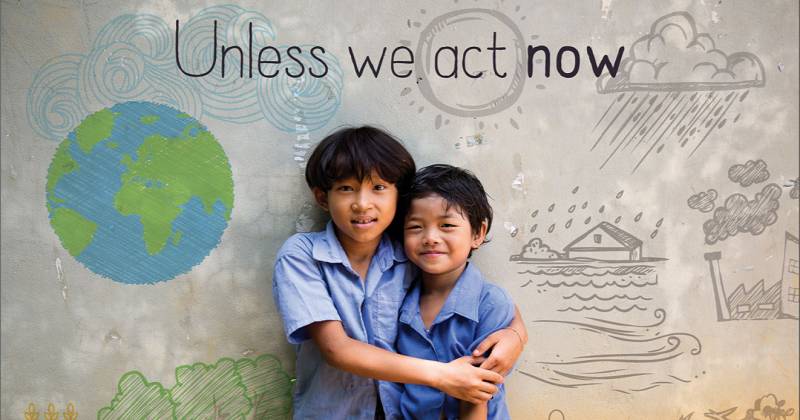
A study that was published on Sunday, in the journal Science, found that the average 6-year-old children will witness three times more climate disaster than their grandparents. Human actions made the planet a far more threatening place for the younger generations to grow up.
Wim Thiery, the lead author of the study called it a massive effort to quantify ‘inter-generational inequality’ of climate crisis. The study found that if the world continued to warm up at this rate, young children would see twice as many wildfires, 3.4 times as many river floods, 2.3 times more droughts, 1.7 times as many tropical cyclones and 2.5 times as many crop failures as compared to someone who was born in the 1960s.
Thiery and 36 colleagues drew multiple climate and demographic models, to compare the risks faced by the preceding generations to the number of extreme climate calamities today’s children would witness in their lifespan. Today’s children could be exposed to five times more disasters unless the world leaders implement more ambitious policies to address climate change, he remarked.
Developing nations would face more dramatic changes, the study found out, stating that the children in sub-Saharan Africa would live through up to 54 times more heatwaves than someone who was born in 1990.

More than half of the greenhouse gases present in the atmosphere today were generated after the 1990s. This indicated that the calamities that would affect today’s children would be caused by the emissions of their parents’ era. The inequalities of climate change include the condition of the countries which contributed the least to the climate change which would face the worst effects.
The people who could bring the change would not be affected by climate change and the young people who would be facing the climate catastrophe had no position or power to make decisions to change the world, Thiery said.
The consequences of climate change could be decreased only if the leaders took aggressive efforts to curb the use of fossil fuel and limit the warming to 1.5 degree Celsius above pre-industrial level, the study concluded. A UN report which was published earlier in September, warned that greenhouse gas emissions according to the current climate pledges made by the countries, would increase by 16 percent, by the end of the decade.
The study warned that anyone who was under 40 was destined to live a life of unparalleled tragedies. If the world could invest in making the communities safer from climate disasters, these calamities would be less disastrous for the future generations, Thiery noted.

Post Your Comments